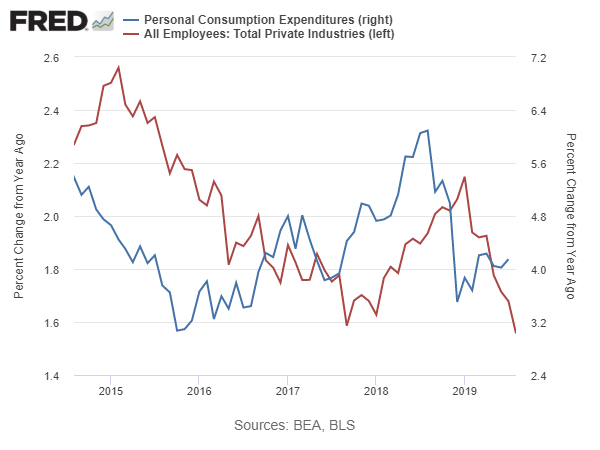The House of Representatives has formally launched an impeachment inquiry into President Trump, a turn of events with precious little history and so the investment implications are necessarily speculative. The crowd’s initial response: an orderly but determined move into safe havens, starting with Treasuries. Deciding what comes next is unclear, but it’s a reasonable guess that the political factor will remain front and center until further notice.
The bond market’s first response was unambiguous: bid up the price of safe havens. In turn, the benchmark 10-year Treasury yield fell, slipping to 1.64% on Tuesday (Sep. 24), the lowest since Sep. 9. It’s noise for now, but rest assured that the market will be watching closely to see if the previous low of late-August/early September – 1.47% — gives way. If that floor cracks, the focus will quickly turn to the question of whether a new record low is near by taking out the previous trough: 1.37% from July 2016.
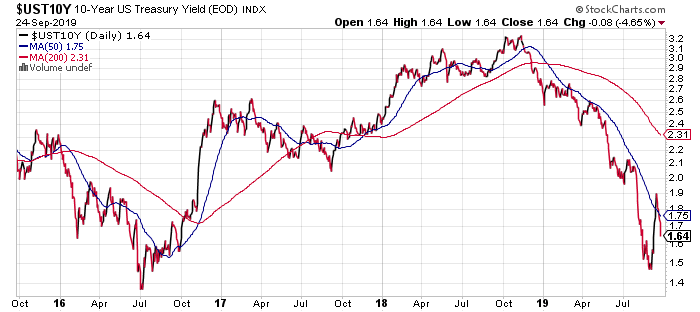
Meantime, Washington’s impeachment circus appears set to guide sentiment, for bonds as well as stocks. Art Hogan, chief market strategist for National, a brokerage, muses that investors previously have been mostly tuning out the Beltway’s Sturm and Drang. “It felt like politics really wasn’t moving markets too much until today,” he observed on Tuesday.
Let’s note, too, that yesterday’s news cycle also included fresh economic data that inspired bond bulls anew. The Conference Board reported that its US Consumer Confidence Index fell to a three-month low this month. That still leaves CCI at a middling level vs. recent history, which is to say close to the highs seen during the Trump presidency. But if the tenor of political risk is changing for the worse, the mood on Main Street may continue to darken.
The immediate cause of CCI’s slide is the flare-up in trade-related risk, says Lynn Franco at the Conference Board, which publishes the data. “The escalation in trade and tariff tensions in late August appears to have rattled consumers,” she explains in a statement.
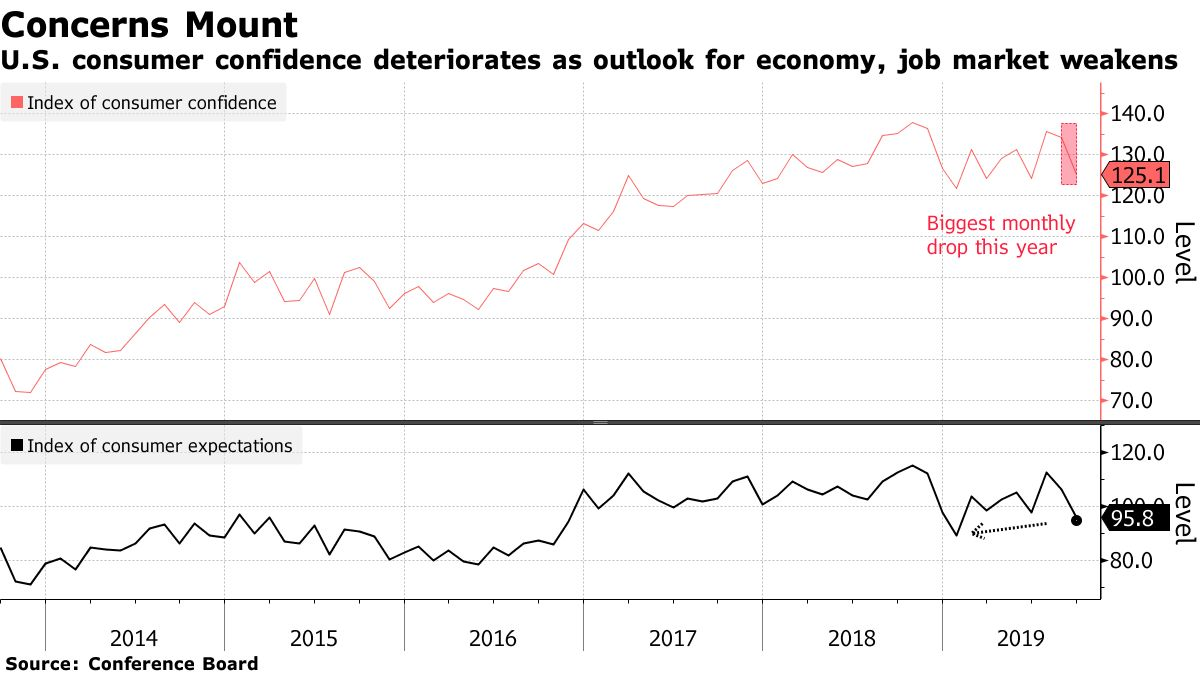
However, this pattern of uncertainty and volatility has persisted for much of the year and itappears confidence is plateauing. While confidence could continue hovering around current levels for months to come, at some point this continued uncertainty will begin to diminish consumers’ confidence in the expansion.
It all adds up for an excuse for the crowd to dump stocks. The S&P 500 Index fell 0.8% yesterday, reinforcing the view that the market’s double-top formation in recent months will mark a cap in equities for the foreseeable future.
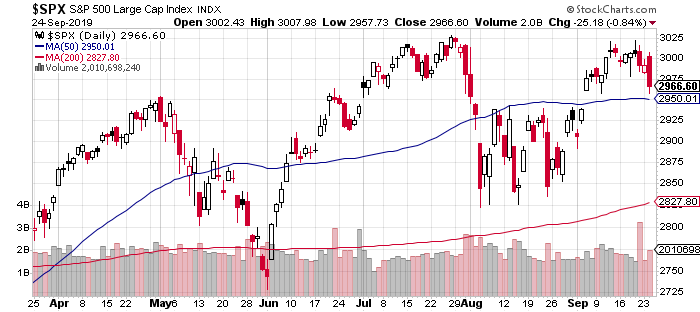
One day is hardly a trend, but one analyst is inclined to think that political risk has become a bigger influence on investor sentiment after yesterday’s developments. “In any news-driven market, that could have contributed to selling here, and then Biden came out and said ‘I support impeachment.’ Up until this point, I thought the political stuff didn’t mean anything. Now that it becomes real, I can’t discount it,” says Peter Boockvar, chief investment officer at Bleakley Advisory Group.
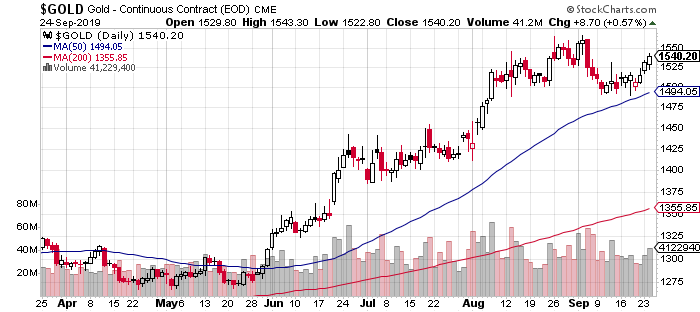
Impeachment news also inspired a fresh focus on gold, which rose to $1540 an ounce on Tuesday, a three-week high.
“The move in gold looks convincing enough to warrant some attention as it’s unlikely the political storm clouds over Washington are about to dissipate any time soon,” Stephen Innes, Asia-Pacific market strategist at AxiTrader, wrote in a research note. The news “might continue to weigh on equity market sentiment, possibly send U.S. yields lower and could undermine confidence in the U.S. dollar.”
But all this is probably a sideshow compared with consumer spending and employment. Bond yields and stock prices will likely take their main guidance from this critical pair. On that note, Friday’s update of consumer spending data for August looks set to reaffirm that moderate growth prevails, based on the consensus forecast via Econoday.com.
The bigger question (and potential threat) is the latest slowdown in private employment growth. The 1.56% year-over-year increase in August marked the softest increase in eight years. If the trend continues to weaken in the September update on payrolls, scheduled for Oct. 4, impeachment-related risk may be the least of Mr. Market’s worries.
